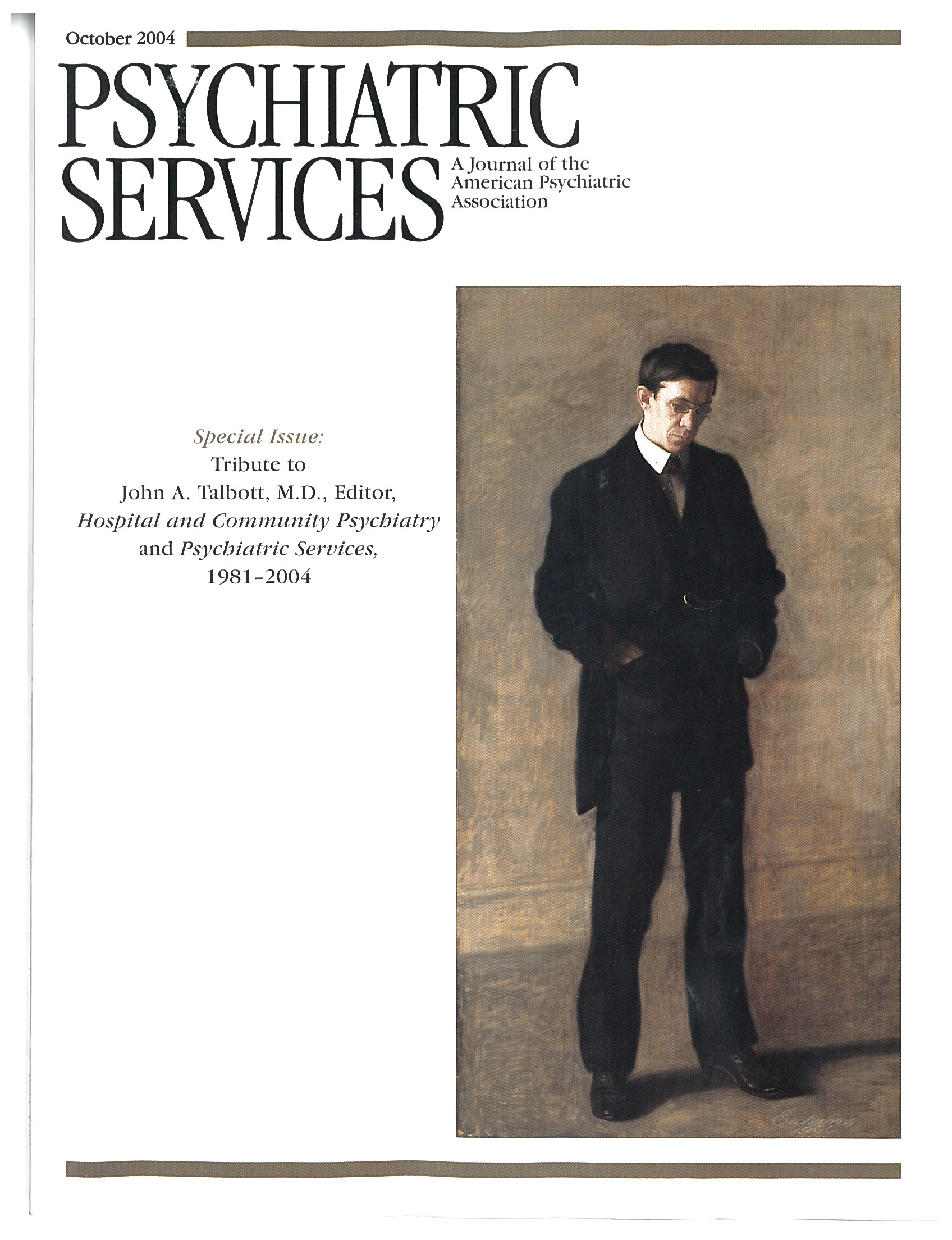To the Editor: The common wisdom dictates that the agent of change must ultimately go. This departure is usually premature and most often unwelcome. Some individuals defy the common logic—once they are done with the changes, they choose when to withdraw and begin their next venture on their own terms. Beyond the titles, the honors, the leadership positions, and the recognitions, when the accolades are forgotten, when retirement becomes a way of life, then we should all remember John Talbott's most important legacy. The Maryland Psychiatric Research Center, the Center for Mental Health Services, the affiliation between his department and Sheppard Pratt, and Psychiatric Services will stand as reminders of the work of a tireless intellect, but they do not rank as the most enduring memories for some of us.
Just a few words into one of John's articles, the reader could see the path to follow. The message was direct and to the point. When the topic was raised in a casual conversation with John, the encouragement came swiftly and in a few words. John's encouragement to persevere in the line suggested by his writings and the exhortation to write an article for Psychiatric Services were golden to those who toiled to improve the lot of people with serious mental illness. John's encouragement was a treasured lifeline in this difficult field. His wish to remain in the background as a tireless, cheerful, and self-effacing mentor was an inspiration. It was all communicated in a few precise words, a cutting gesture dismissing the doubts, a thrust of the index finger that left no option but to go forward, and the lot punctuated by a sonorous laugh that reminded the follower not to take himself too seriously while attending to this very serious business.
We will remember the debt of gratitude that people with serious mental illness owe John Talbott—not only because of his writing and leadership contributions but also, and mostly, because he touched and inspired so many in our endless search for a just system of care.
Dr. Santiago is chief medical officer of Carondelet Health Network in Tucson.



